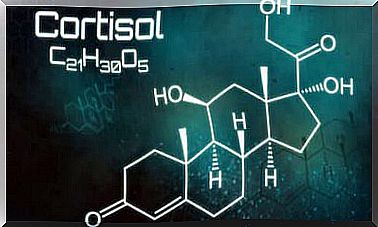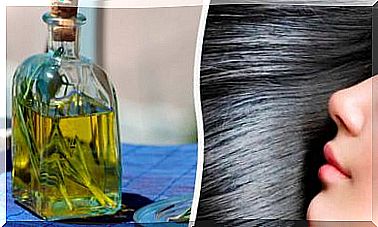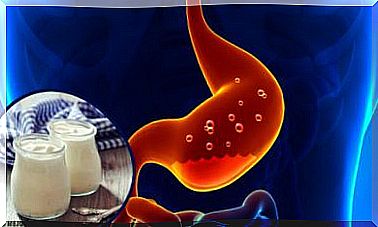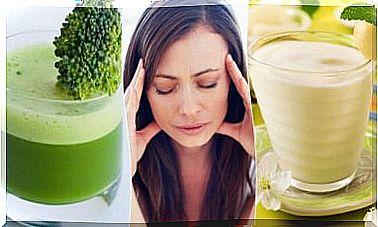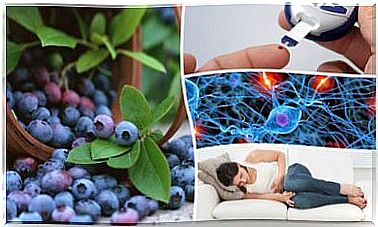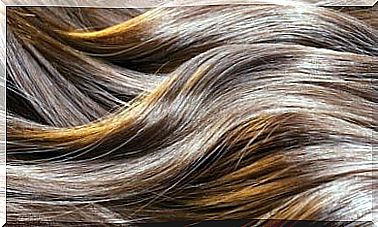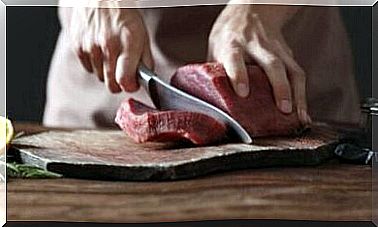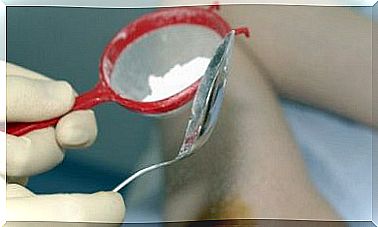7 Supplements You Must Consume If You Are On A Vegan Diet
A vegan diet plan has multiple health benefits. However, it is necessary to ensure the consumption of certain nutrients through supplements. Which ? Discover them!

Many people strongly believe that the vegan diet is a perfectly healthy eating plan. They are not necessarily mistaken because the benefits of consuming plant products are proven by scientific research. However, depending on the type of diet, a person may have certain nutritional deficiencies to a lesser extent.
It should be remembered that the vegan diet is different from the vegetarian diet. Vegetarians, even if they do not consume meat or products derived from it, can consume eggs and dairy products (ovo-lacto-vegetarian) or only dairy products (lacto-vegetarians). For their part, vegans exclude all types of food of animal origin.
Therefore, only plant products will allow them to meet their nutritional needs. Vegans must therefore resort to supplements to be able to obtain these nutrients which are only obtained in optimal quantities through foods of animal origin. Do you want to know more?
What are the nutritional deficiencies caused by a vegan diet?
Gibson, in a publication in The American Journal of Clinical Nutrition , pointed out that in a vegan diet, fortified foods should be recommended to improve the bioavailability of certain nutrients, such as minerals. The most critical nutrients are:
- Omega-3 fatty acids.
- Iron.
- Zinc.
- Calcium.
- Iodine.
- Vitamin D.
- Vitamin B12.
In plants, minerals are blocked by phytic acid and tannins, which decrease their absorption and use. Calcium deficiency can affect bone integrity. Bone mineral density (BMD) is also lower in vegetarians than in omnivores. This is why the risk of fracture increases by 10% in vegans.
Another deficiency of the vegan diet is vitamin B12. Its deficit varies between 40% and 90% depending on the age of the vegans. The low ingestion of B12 can thus affect the blood system, the skin, the mucous membranes and the nervous system.
Studies in the UK have also determined that vegans have a greater deficiency of vitamin D because it is found mainly in fish.
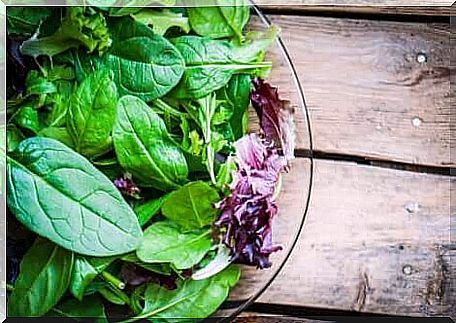
7 supplements to take if you’re on a vegan diet
In a vegan diet, nutrients considered critical must be supplemented in adequate amounts to meet needs. This will prevent nutritional deficiencies and possible health risks.
We must also take into account some recommendations to make the most of the nutrients contained in plants. Which are the most important? How to get them? Read on!
1. Vitamin B12
Vitamin B12 is essential for the regeneration of bone marrow and red blood cells. In addition, it participates in the metabolism of the central nervous system and in DNA synthesis.
In a vegan diet, B12 can only be provided by fortified foods like grains, plants grown with organic fertilizers, pickles, or fermented foods that have been prepared with bacteria and yeast.
The required daily dose is 2.4 mcg for adults. When prescribing vitamin supplements, take at least 10 mcg daily or 2000 mcg per week. Today, medical companies continue to prescribe supplements for these types of diets.
2. Vitamin D
Vitamin D behaves like a hormone and influences calcium metabolism. Improving the absorption of calcium from the bones prevents osteoporosis in adults and rickets in children. The required daily dose for adults is 5 mcg and can reach 15 mcg in people over 70 years of age.
Vitamin D supplement is found as cholecalciferol or D3 in fish oil or D2 of vegetable origin. In the latter case, we must take 1000 mcg per day. Of course, this nutrient can also be synthesized from exposure to sunlight, at least 3 times per week.
It is important that the sun touches all the skin without sun protection. If the sun exposure is not sufficient, or if you are following a vegan diet, you must take supplements.
3. Calcium
Calcium performs structural functions of bones, teeth, and metabolic health, such as regulating the nervous system and heartbeat. The daily requirement for an adult is 1000 mcg.
In vegan diets, some of the calcium is blocked in non-absorbable complexes, such as phytates and oxalates. In general, its intake is below the daily recommendations.
Cooking, soaking for at least 8 hours, germination and natural fermentation with wild yeasts can activate the phytase enzyme in the seed. In this way, the calcium blocked with the phytate is released and then absorbed.
4. Omega-3 fatty acids
Omega-3s help prevent cardiovascular disease, diabetes and diseases of the immune system. Plants do not contain docosahexaenoic acid (DHA) or eicosapentaenoic acid (EPA) but do contain omega-3 alpha-linolenic acid (ALA). Barely 10% of this fatty acid can turn into DHA or EPA. This is why its ingestion must be more important in vegan diets.
It is also recommended not to use too much corn, sunflower, cottonseed oil (among others) because they contain omega-6 which reduce the synthesis of EPA and DHA. Olive oil can replace oils rich in omega-6s.
To cover ALA requirements, one and a half tablespoons of ground flax seeds or one tablespoon of unheated raw flaxseed oil should be included in the diet. The low conversion of ALA necessitates the use of supplements in EPA and DHA, derived from microalgae.
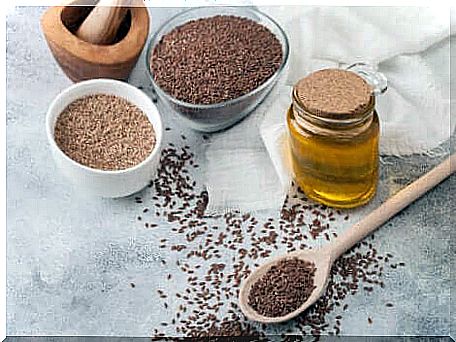
5. Iron
Nutritional iron deficiency is the most common. This mineral is responsible for the transport and storage of oxygen in the tissues. It also acts on the nervous system and energy metabolism.
Plants contain non-heme iron, which is absorbed at a level between 3 and 8%. Vegans have a daily iron recommendation that is 1.8 times higher than non-vegetarians.
- To improve its bioavailability, it is recommended to consume germinated grains and legumes, to soak or to ferment with the yeast of the bread.
- Coffee and tea should be avoided after meals because the tannin content decreases the absorption of this mineral.
- Consuming fruit drinks or whole fruits rich in vitamin C will increase iron absorption six times more.
6. Zinc
Dietary intake of zinc ranges from 3 to 10 mcg, depending on age and gender. This trace element is involved in the synthesis of proteins and collagen. Therefore, it affects the wound healing process, promotes the absorption of vitamin A and improves the immune response.
The greatest zinc deficiencies have been observed in vegans, unlike ovo or ovo-lactéo-vegetarians. Zinc is also blocked by phytic acid in plants. Sprouting, fermentation, soaking, cooking and shelling transforms phytic acid and improves intestinal absorption of zinc.
7. Iodine
Iodine is used to synthesize the thyroid hormones T3 and T4. These, in turn, regulate energy metabolism and increase cellular oxygenation. The daily requirement for adults is estimated at 150mcg / per day, although they can be as high as 175 mcg and 200 mcg / day during pregnancy and breastfeeding.
The main sources of iodine are fish, shellfish, crustaceans and algae. For vegans, an excellent option to increase its intake is through algae such as kelp, nori, dulse, among others, 3 to 4 times a week. Half a teaspoon of iodized salt per day also covers mineral needs.
In addition, in these diets, we must pay attention to so-called bociogenic plants, such as cabbages and legumes because, if eaten raw, they prevent the absorption of iodine.
Plan a vegan diet to avoid deficiencies
Because of the risk of nutrient deficiency, it is necessary to know how to plan a vegan diet. So, whenever possible, it is best to consult a nutrition professional. While it is true that plants are very healthy, it is also true that they cannot meet all nutritional needs.
After everything we have seen in this article, it is essential to plan this diet well, to create a balance with the foods and to resort to certain supplements that help cover the deficiencies. Thanks to this, it will be possible to follow this style of eating without putting your health at risk.
